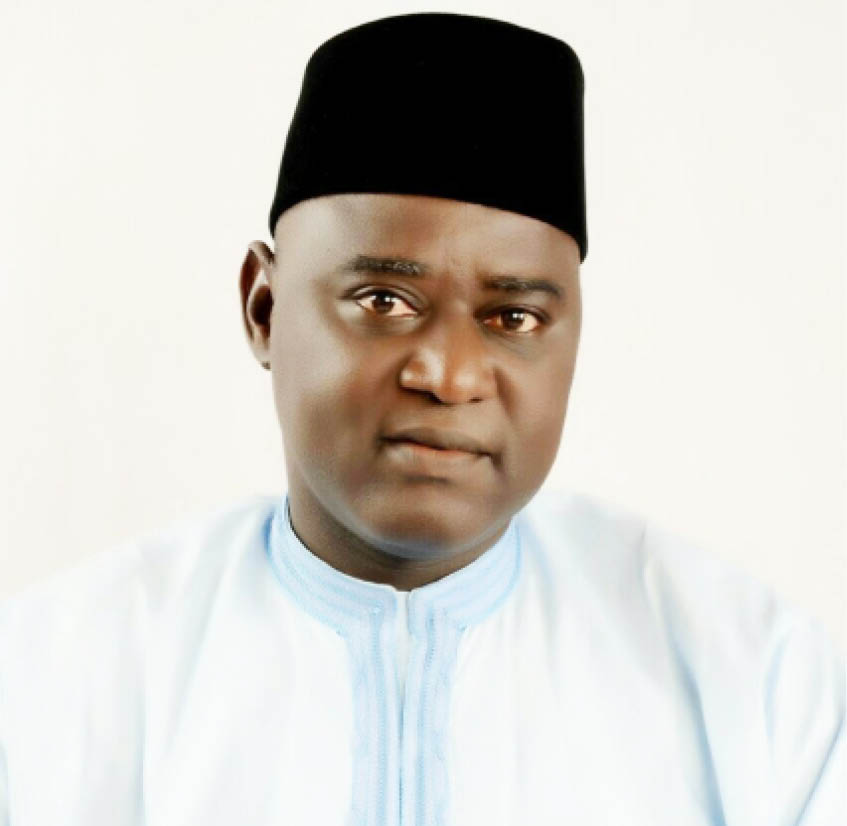Adamu Kasimu is the newly elected Vice Chairman of the Estate Surveyors and Valuers Registration Board of Nigeria (ESVARBON). Kasimu, who is also the former Chairman, Nigerian Institution of Estate Surveyors and Valuers (NIESV), FCT chapter, in this interview, explains some of the problems confronting the profession and other sundry matters.
What role does ESVARBON play in the built environment?
ESVARBON was established by a creation of parliament. The legislation 13 LFN 2007 established ESVARBON as the regulatory body for the profession to regulate the practice of estate management services in all its ramifications.
Two, to set the minimum academic standard to be attained by persons to be registered as estate surveyors and valuers in Nigeria.
The third is to investigate and discipline any member who is found guilty of misconduct. Presently, some members are being investigated for different offences and if found wanting will be duly de-registered.
Does ESVARBON have any method of policing its members?
ESVARBON is a regulatory body; what it does is to set regulations, and these have been provided. They have provided standard scale of charges for compliance, so until we receive reports of breach, it cannot act based on rumours.
Estate surveyors and valuers are reported to be receiving pittance as fees as against the professional fees, how true is this?
What we have is called scale of professional charges for different kinds of jobs that the estate surveyor and valuer does. The rule is that the registered estate surveyor and valuer is supposed to charge fees in accordance with the provision of the scale of charges issued by ESVARBON. Non-compliance with the rules on scale of charges is always frowned upon by the board.
Building collapse in Nigeria has become a recurring issue, what is the problem?
A building is a project, and any real estate project is supposed to start with the idea which germination is the responsibility of the estate surveyor and valuer before you begin to look for other consultants. And at the end of the project the estate surveyor is the manager. But it is not uncommon for you to see some clients starting their projects with other professionals. So the estate surveyor is given damaged assets at the end of the day.
There are three basic causes of building collapse in Nigeria: one, if you fail to plan, you plan to fail. So not involving the estate surveyor from the beginning is the cause of collapse. Secondly, there is the problem of supervision during construction. People like to cut cost at the detriment of quality. Thirdly, for some cities that are getting old, the buildings are ageing. In Lagos, some buildings are over 100 years old.
So there should be an urban renewal process in place; there should be action by planning authorities to ensure old buildings are renewed in line with current economic realities. And licensed estate managers or facility managers should be managing these buildings.
Is the number of estate surveyors in Nigeria commensurate with the rate of building developments?
It is a continuous process; for our current population we can manage what we have. We have roughly 4,000 plus in Nigeria, but we still need more.
Are estate surveying and valuation jobs coming from public or private sectors?
The two sectors work hand in hand and there is a symbiotic relationship between them. One of the problems in the public sector is the inadequacy of estate surveyors in the system, and two, they are not recognised. We have only land officer cadre in the public service that is to be occupied by the estate surveyor and valuer. In the entire civil service we have only one Director of Lands, even the valuation cadre stops at GL 06; which is very wrong.
The Council of Establishment under the Head of Service could do well by opening up the cadres. We should have director, lands, director, valuation, director, estate services, and director mortgages. This will ensure good participation.
What are the necessities for the registration of land title in Nigeria?
A title is one that vests interest in land on a particular person, but there are different documents. By virtue of the Land Use Decree you can have a statutory Right of Occupancy (R of O) evidenced by a Certificate of Occupancy (C of O) issued by a governor or FCT minister acting on behalf of the president.
We have subsidiary documents that derive their source from C of O, like deed of assignment, deed of partition, deed of lease, mortgages, etc. All these tend to transfer title from one person to another. But then title cannot move until that title is registered, and registrations are carried out in the various land registries in each state of the federation.
If you look at a C of O you will notice that apart from the recitals of granting you this and that, at the end, by the side of the certificate you will see stated that: “This instrument is registered as No….Page….” That is the registration. Without that registration, the certificate you are holding is useless.
It is the same thing if you create a lease or a sublease, you have to register it at the land registry and you pay.
How difficult is this registration?
That is one of the problems; they are expensive and the registration varies from state to state. Like if you want to register a deed of assignment for a property in the FCT, you will pay I think almost eight per cent of the value of the property. This scares many people away and they don’t turn up to register their titles. So most people are only holding equitable interest in land; they don’t hold the legal right if they don’t register.
So I am advising land owners to register their titles and government should also bring down the cost of land registration.

 Join Daily Trust WhatsApp Community For Quick Access To News and Happenings Around You.
Join Daily Trust WhatsApp Community For Quick Access To News and Happenings Around You.


